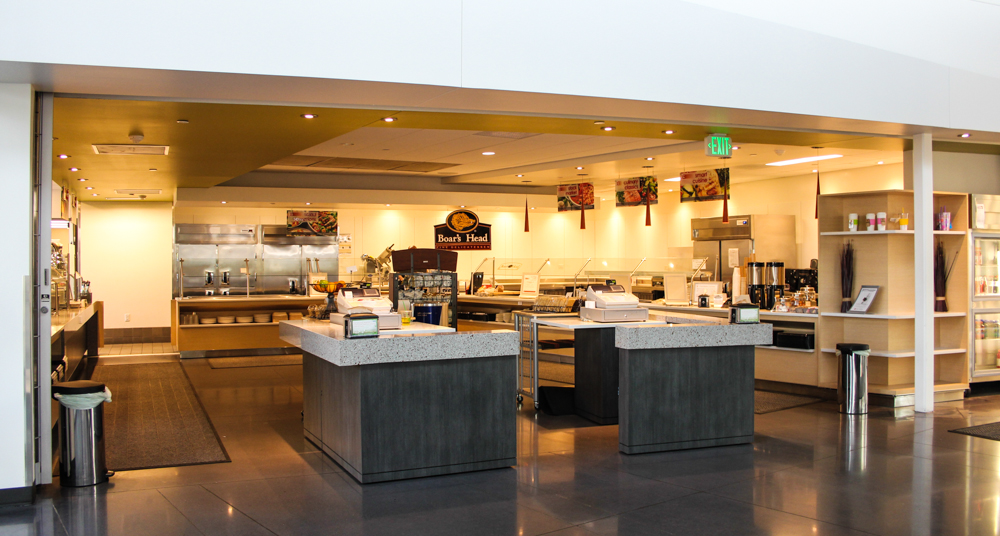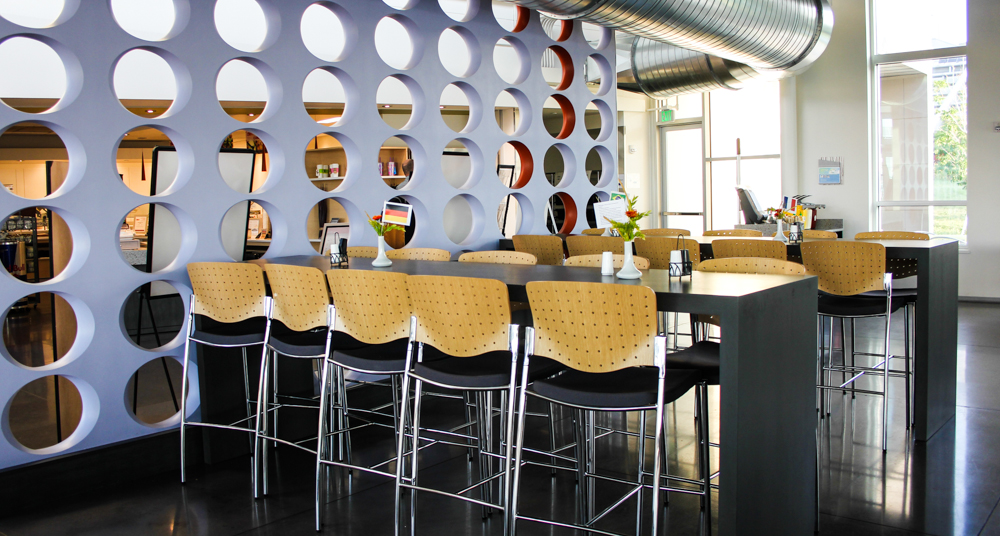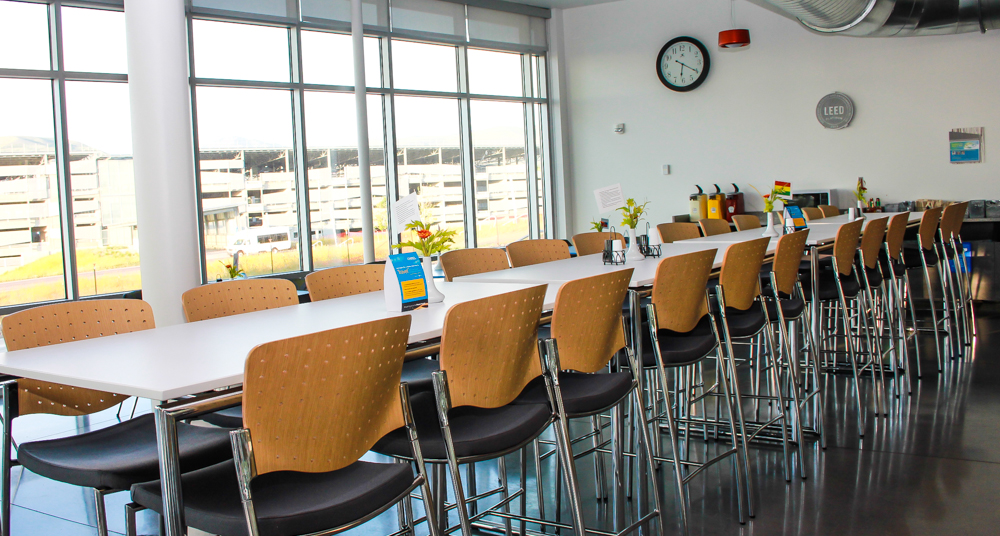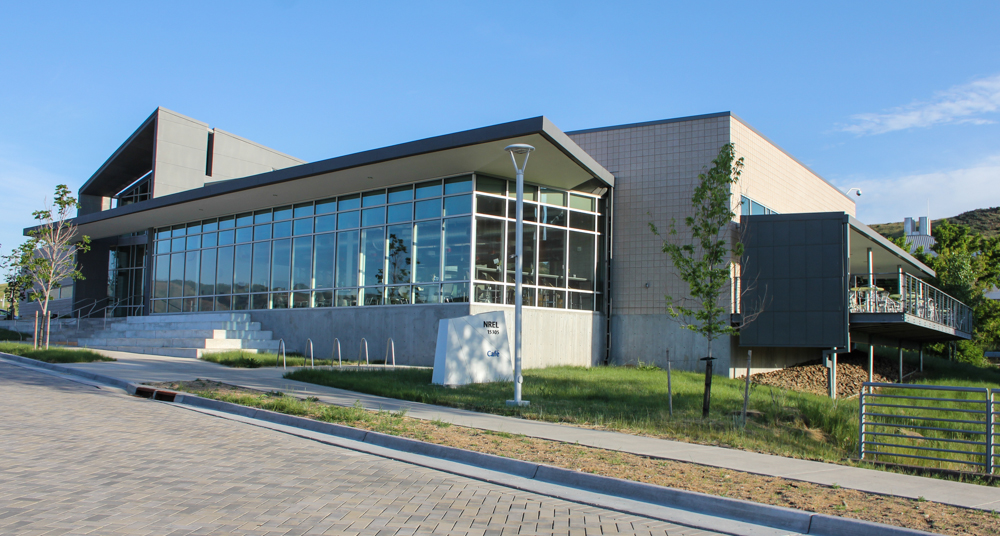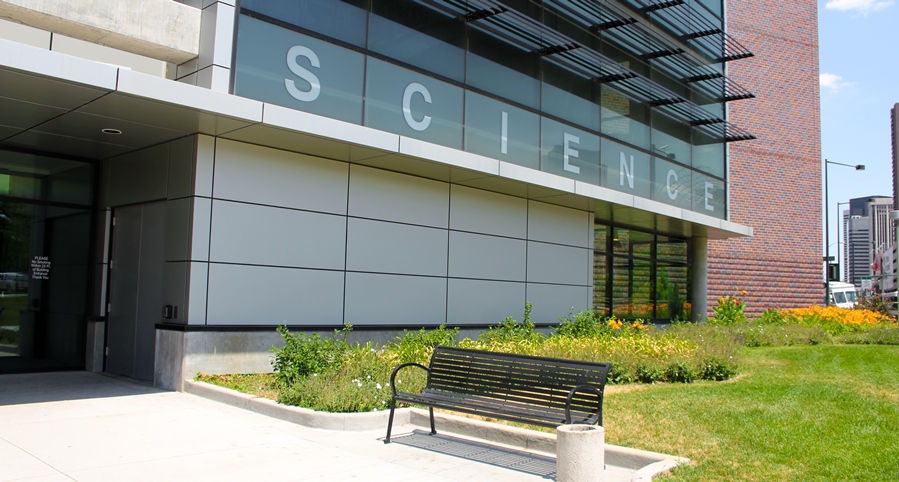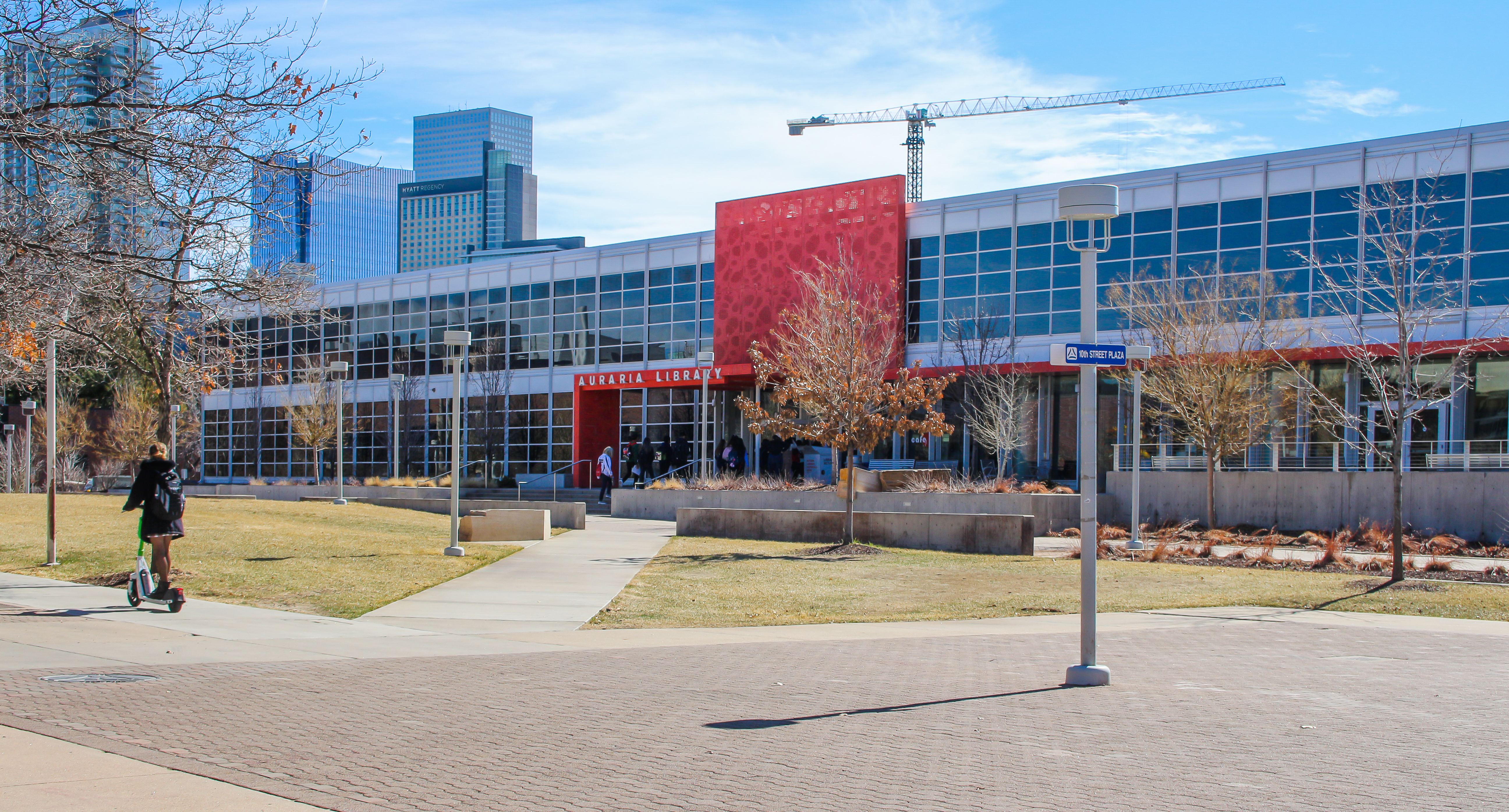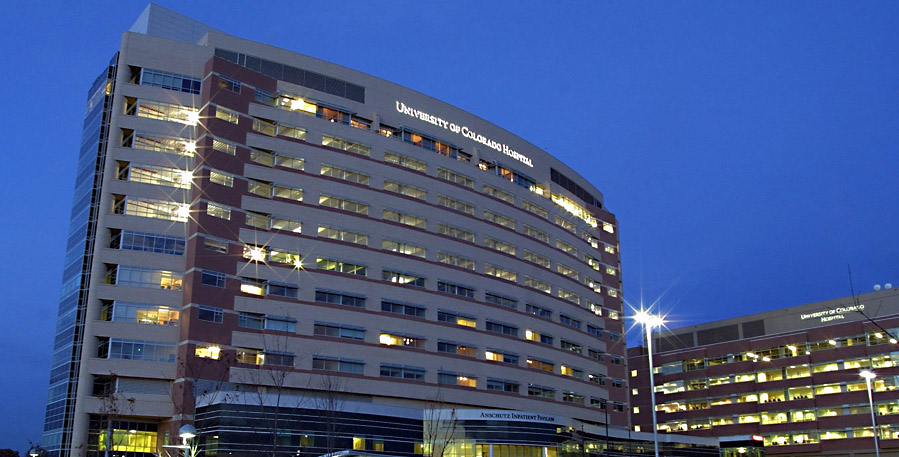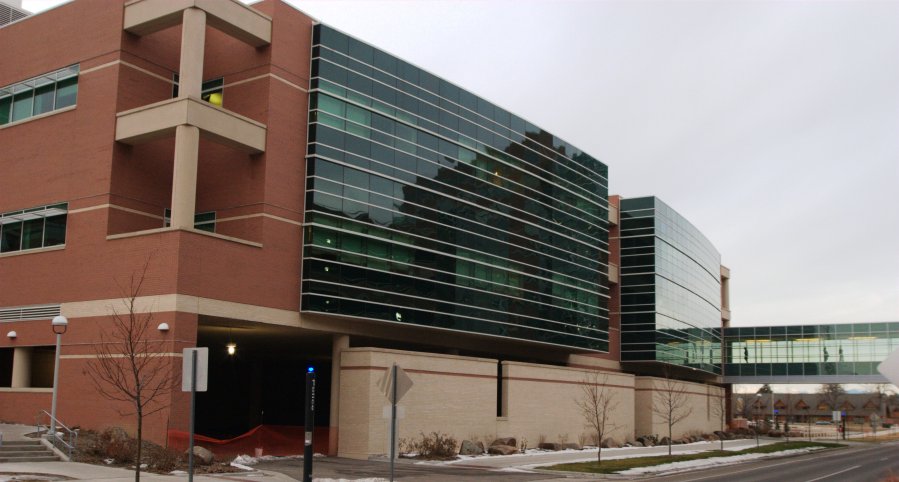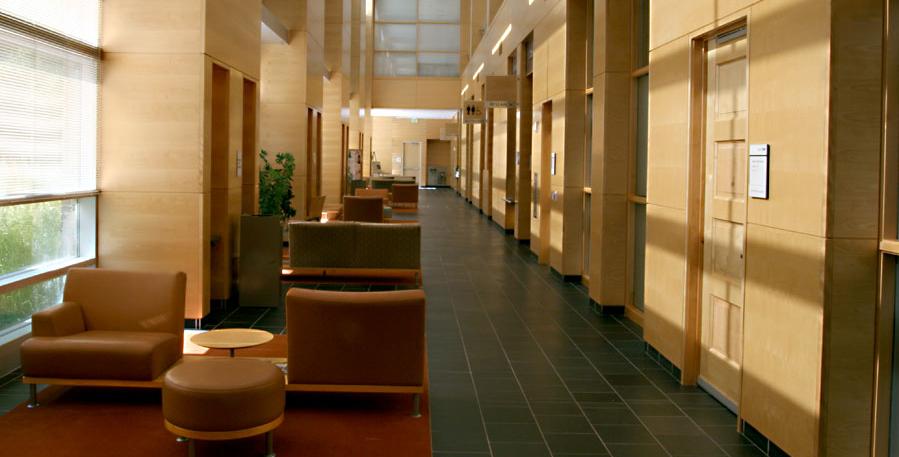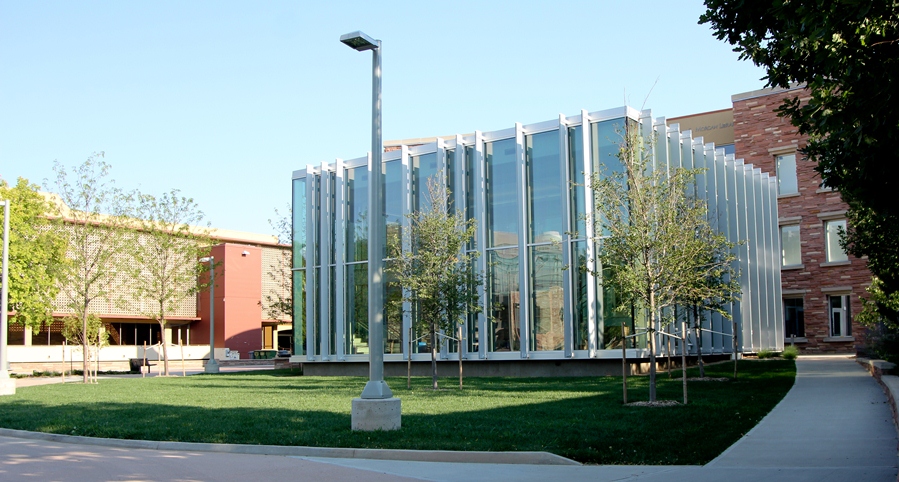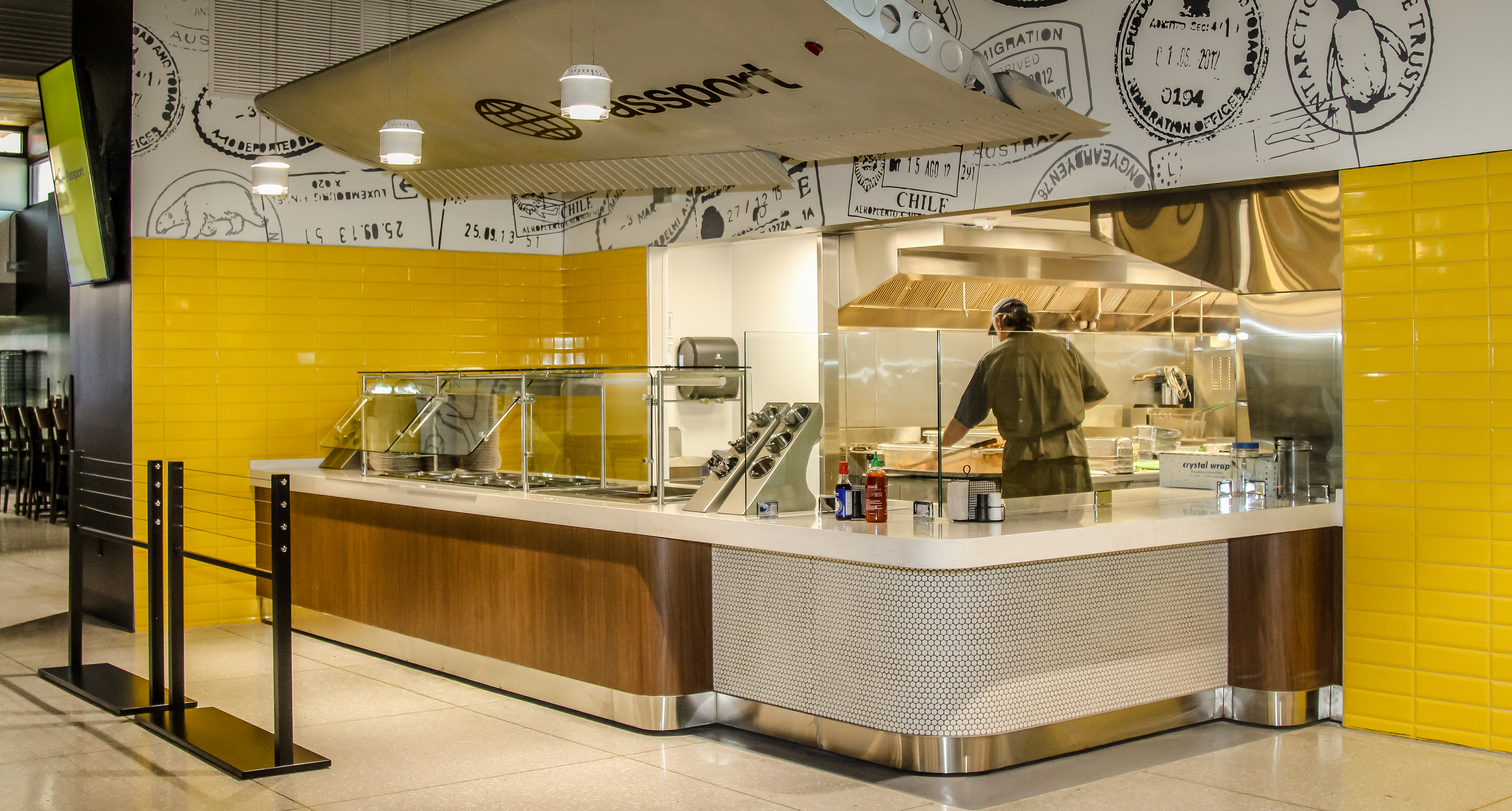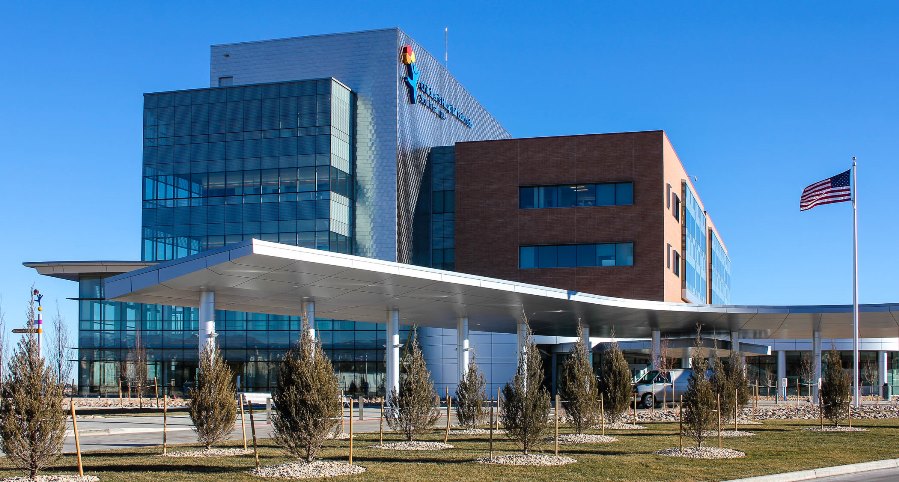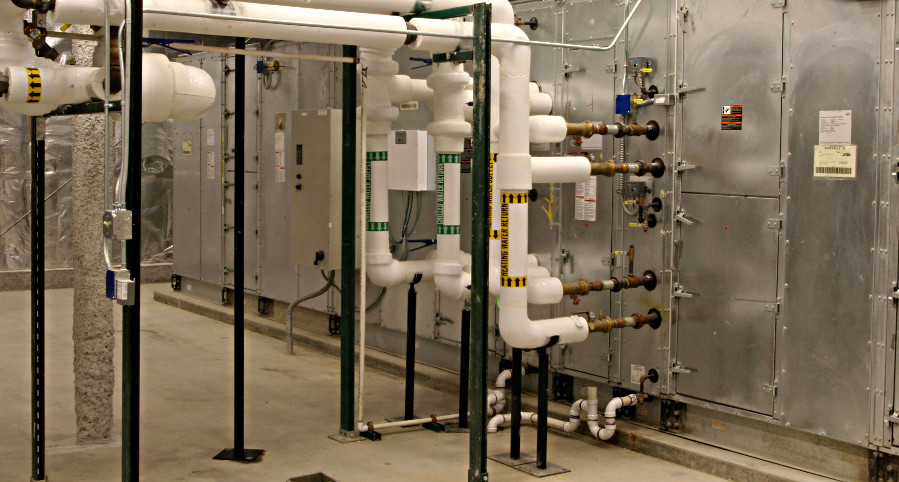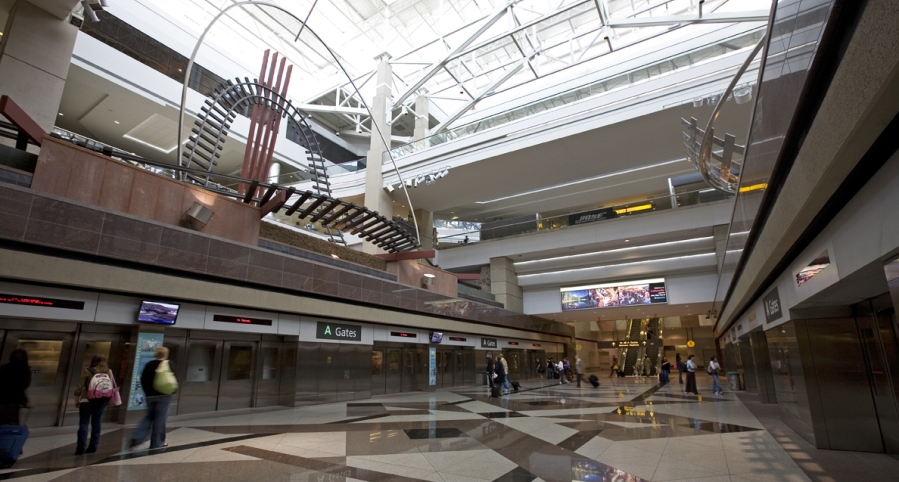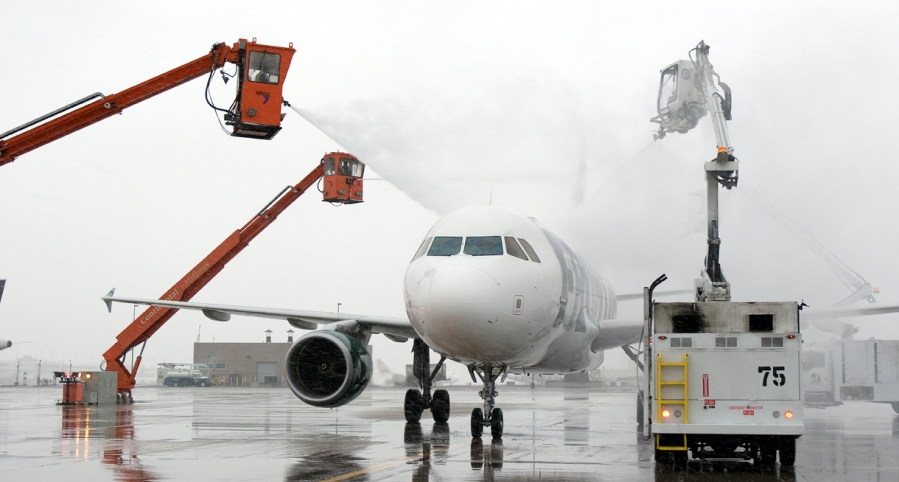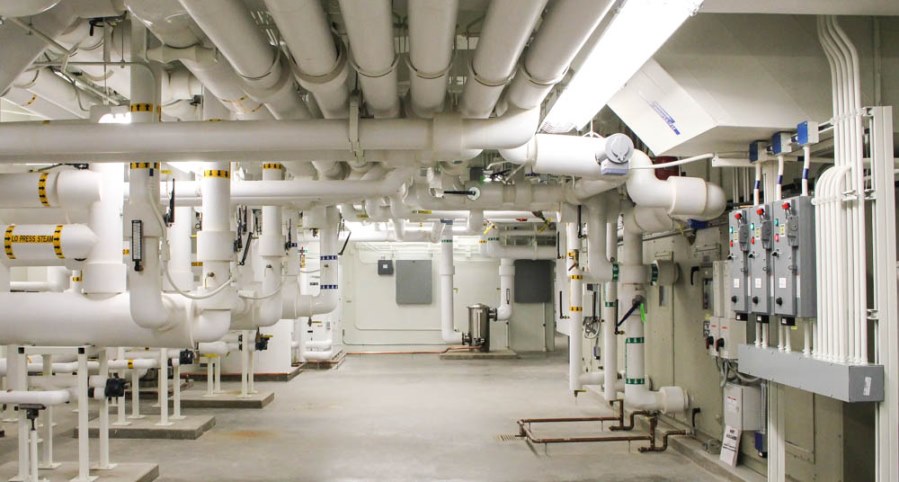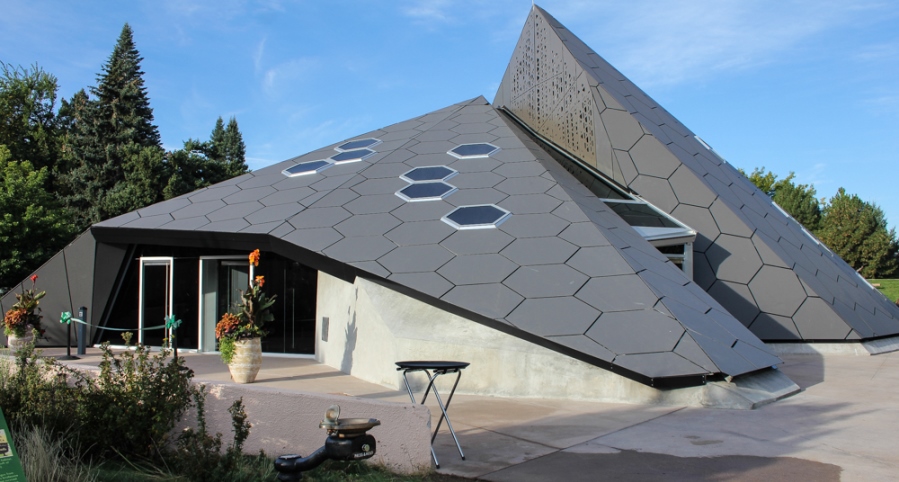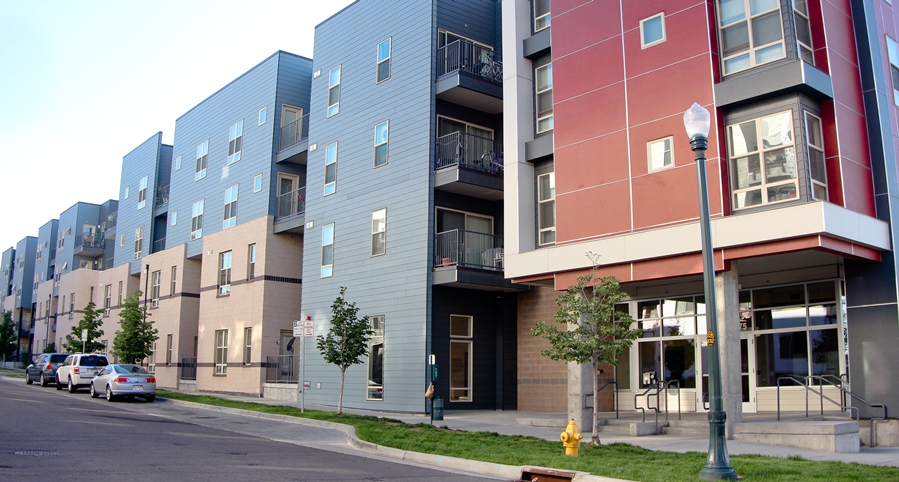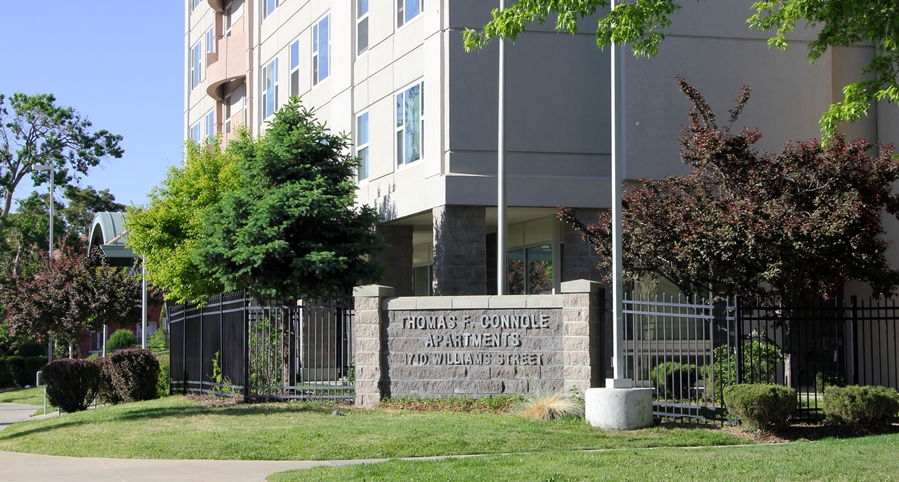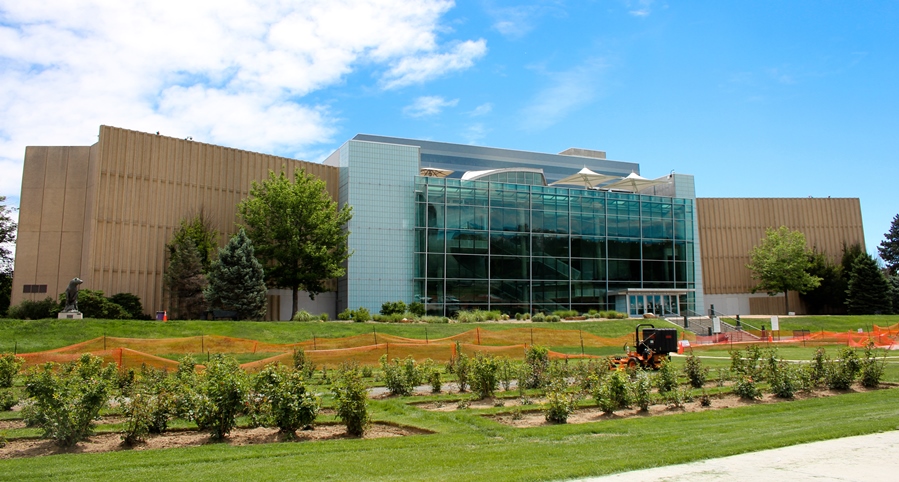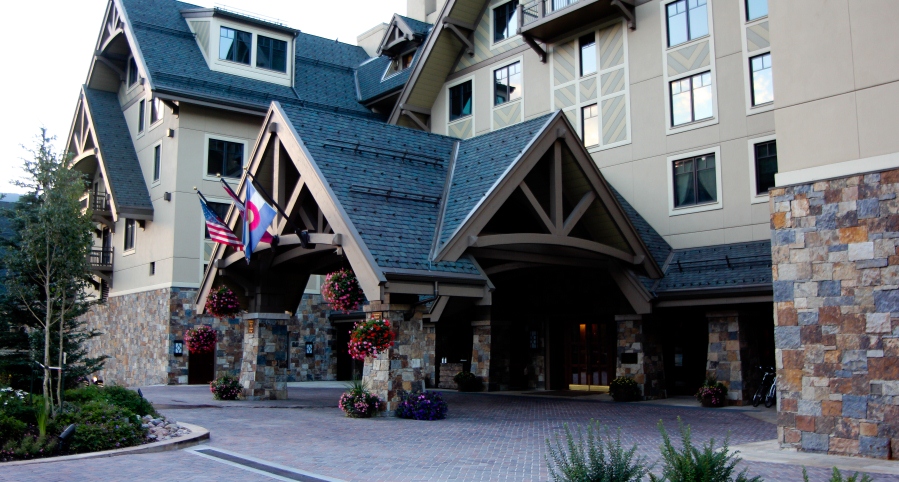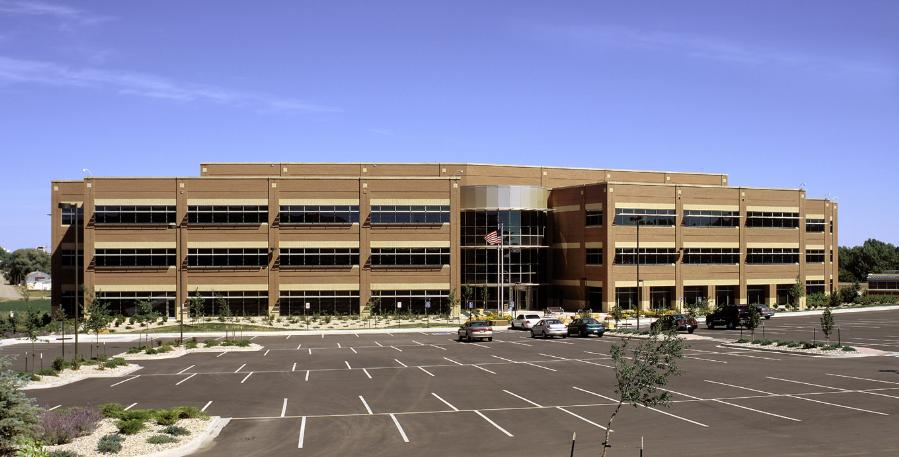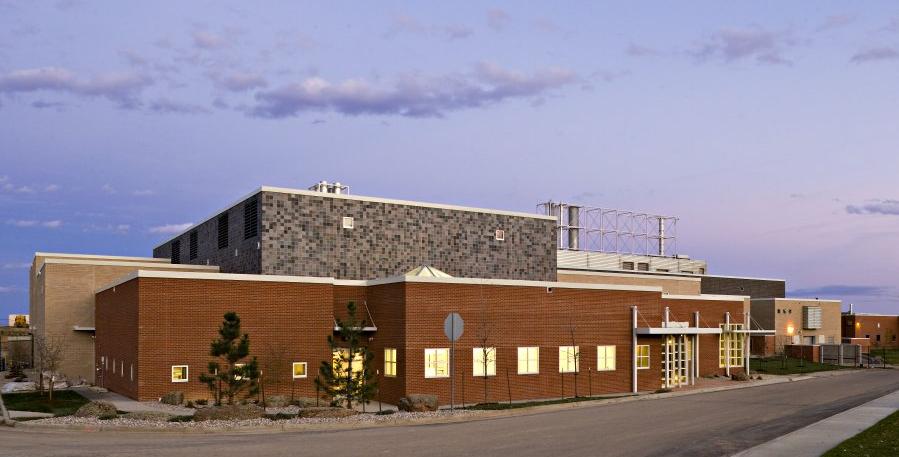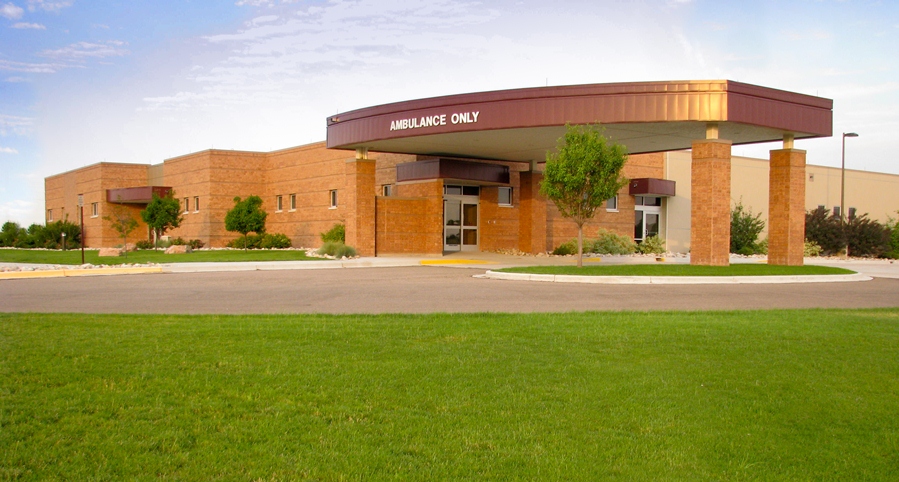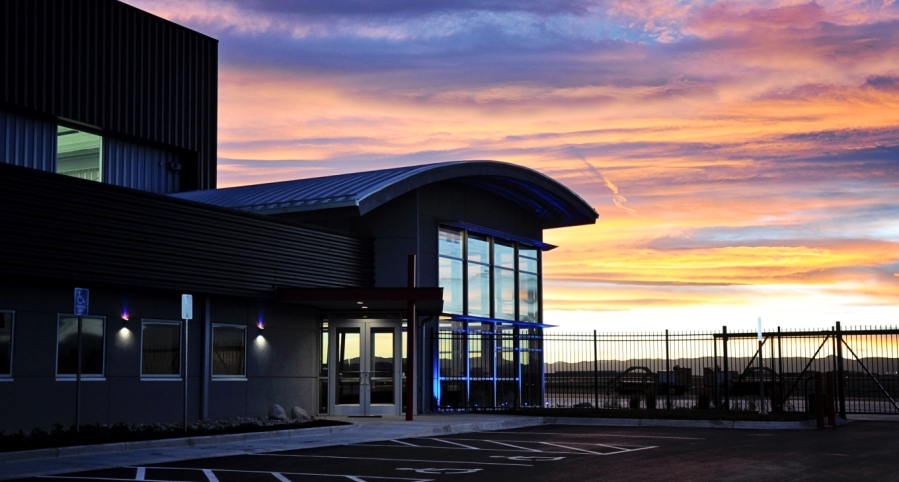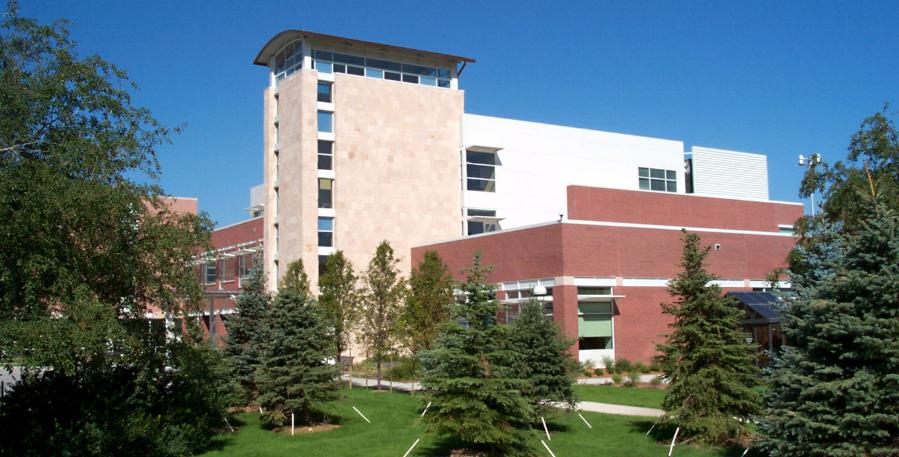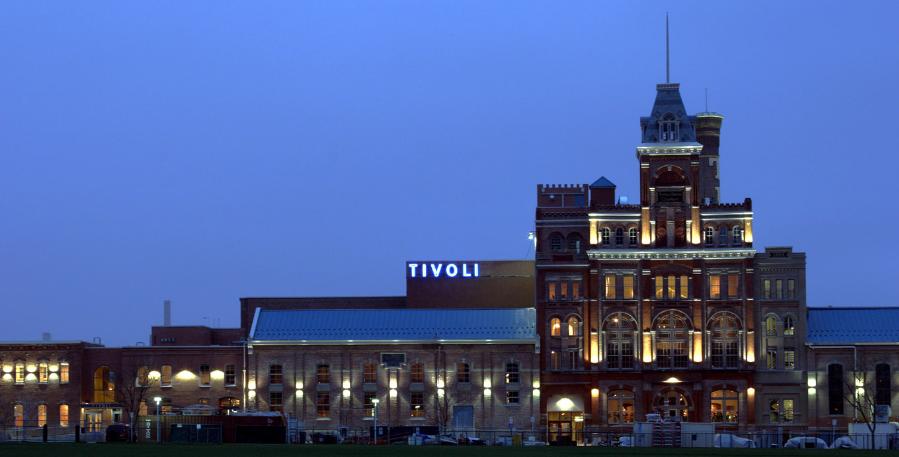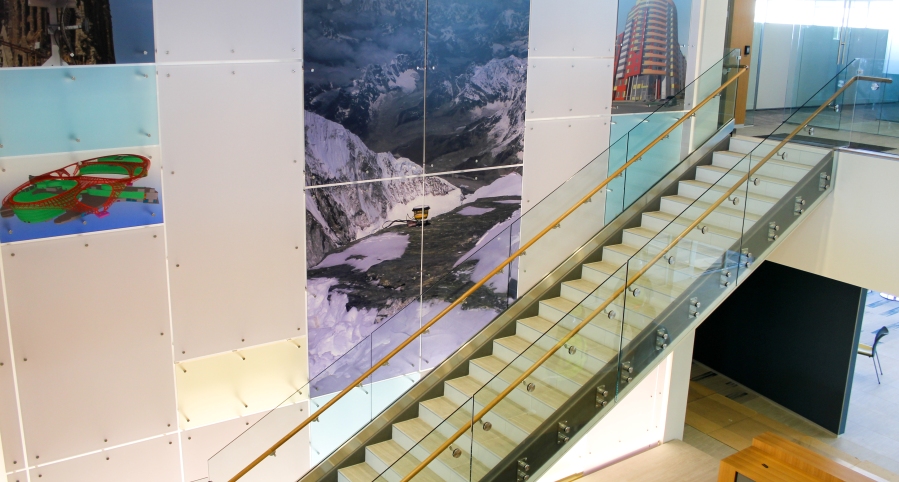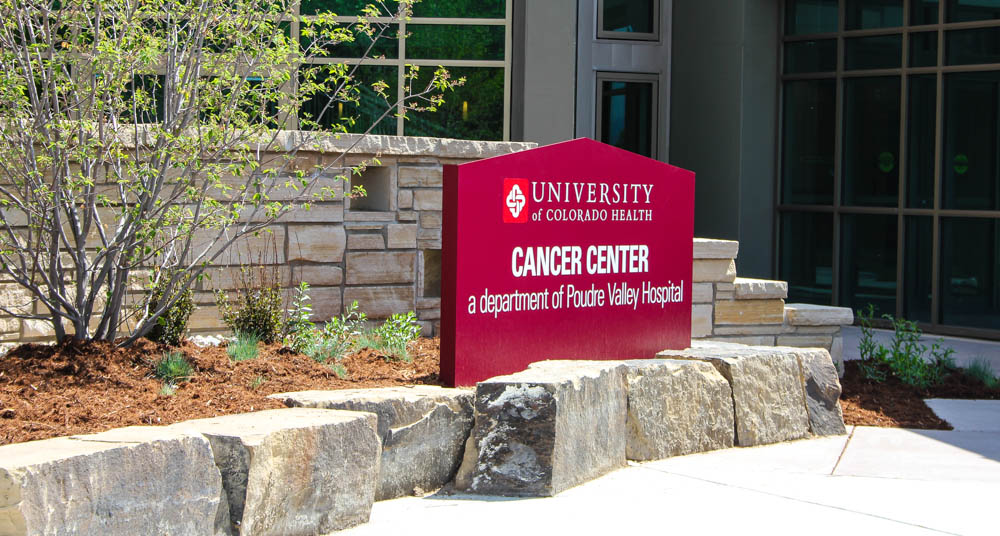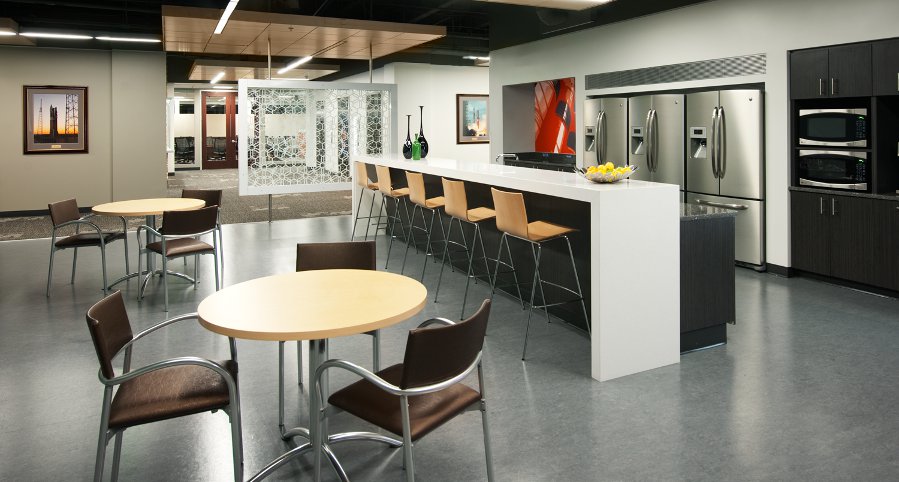NREL – Cafeteria
The LEED v3.0 Platinum Certified NREL Café provides attractive on-campus dining services for the 1620 full time NREL employees. With the addition of the Café the NREL employees now have access to food options previously only available off campus by car or shuttle. Reducing commuting time and vehicle fuel consumption associated with off-campus dining is only one of many ways the NREL Café offers sustainable dining services to NREL employees. BCER Engineering was tasked with designing mechanical, electrical, and plumbing systems that supported NREL’s high performance building goals. Many energy conservation measures were included in this building to reduce its overall energy consumption.
The building envelope offered good orientation which provided a wealth of natural light allowing automatic lighting controls to drastically reduce the artificial lighting required to light the building during the day.
The dining area is cooled by a variable volume indirect/direct evaporative cooler. No additional mechanical cooling is used. Heat to the dining area is provided by the same variable volume unit and utilizes indirect natural gas heat exchangers. In heating, demand responsive controls are used to reduce the ventilation rate and save energy during periods of low occupancy.
The kitchen makes use of variable volume commercial kitchen exhaust hoods that save energy when the cooking appliances are at low load. During the peak food preparation times, the exhaust rate is automatically increased in response to the cooking activity. Make-up air for the hoods is provided by a combination of transfer air from the dining area and a dedicated variable air volume make-up air unit.
BCER Engineering used energy analysis to optimize the mechanical and electrical system energy use. The result is documented energy consumption of 143 kbtu/sf-yr without the use of onsite renewable energy. This represents a 23% energy reduction relative ASHRAE 90.1, 2007 and 34% relative to the Commercial Building Energy Consumption Survey (CBECS).


